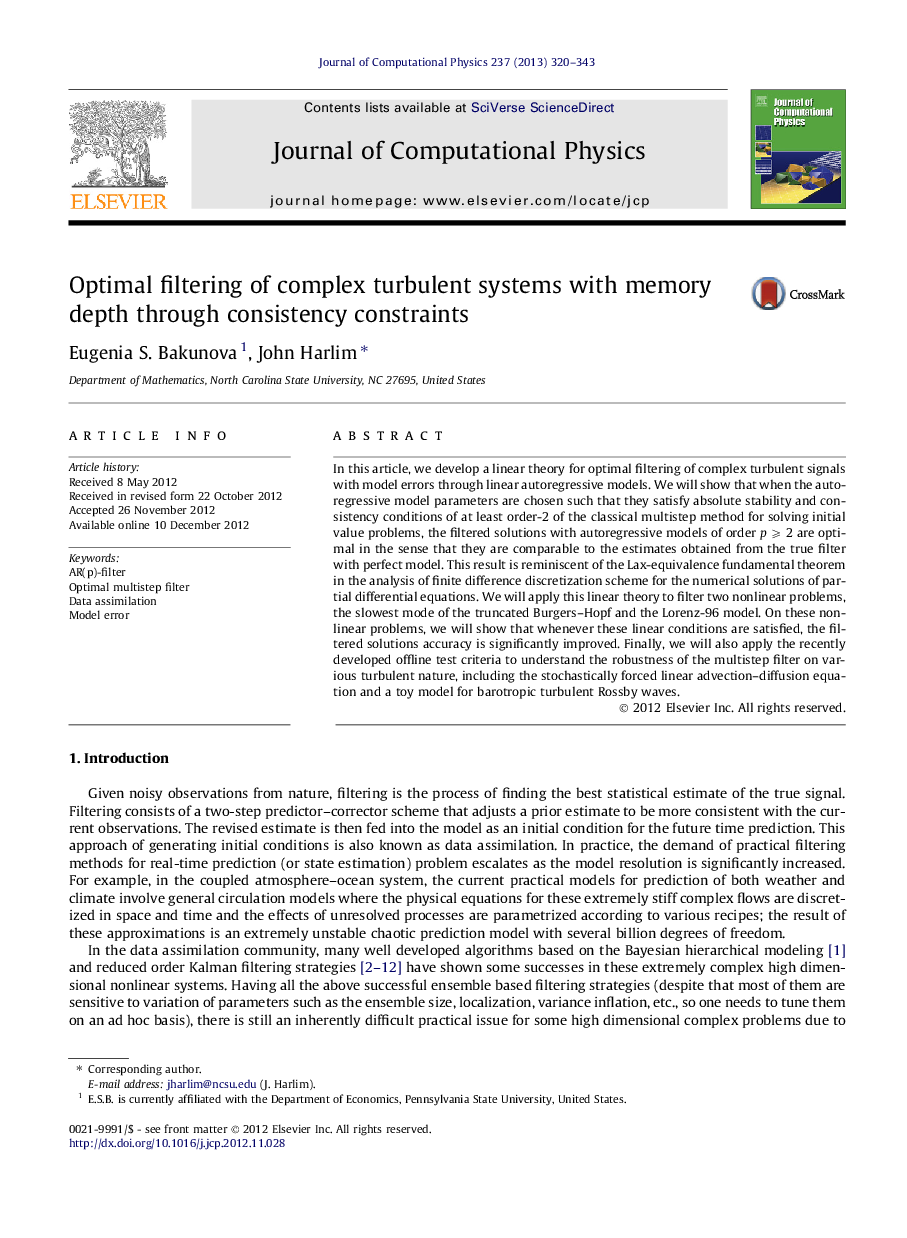| Article ID | Journal | Published Year | Pages | File Type |
|---|---|---|---|---|
| 521545 | Journal of Computational Physics | 2013 | 24 Pages |
In this article, we develop a linear theory for optimal filtering of complex turbulent signals with model errors through linear autoregressive models. We will show that when the autoregressive model parameters are chosen such that they satisfy absolute stability and consistency conditions of at least order-2 of the classical multistep method for solving initial value problems, the filtered solutions with autoregressive models of order p⩾2p⩾2 are optimal in the sense that they are comparable to the estimates obtained from the true filter with perfect model. This result is reminiscent of the Lax-equivalence fundamental theorem in the analysis of finite difference discretization scheme for the numerical solutions of partial differential equations. We will apply this linear theory to filter two nonlinear problems, the slowest mode of the truncated Burgers–Hopf and the Lorenz-96 model. On these nonlinear problems, we will show that whenever these linear conditions are satisfied, the filtered solutions accuracy is significantly improved. Finally, we will also apply the recently developed offline test criteria to understand the robustness of the multistep filter on various turbulent nature, including the stochastically forced linear advection–diffusion equation and a toy model for barotropic turbulent Rossby waves.
